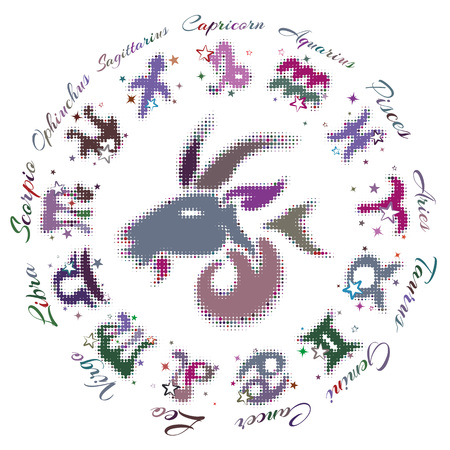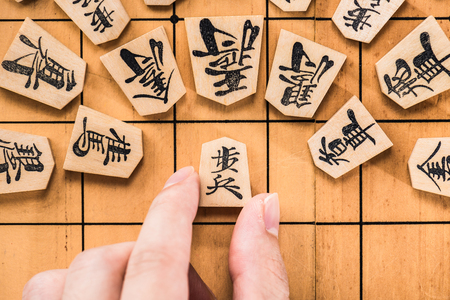1. Introduction: Bridging Ancient Wisdom and Modern Wellness
The Chinese Zodiac, or Shengxiao, traces its origins back thousands of years and stands as a cornerstone of Chinese cultural heritage. Traditionally consisting of twelve animal signs, each representing a year in a repeating cycle, the Zodiac has not only shaped personal identity but also influenced approaches to health and well-being in East Asian societies. In traditional Chinese medicine (TCM), practitioners have long associated each zodiac sign with specific personality traits, elemental forces, and bodily constitutions, offering unique insights into prevention and balance for optimal health. Today, as American wellness culture increasingly embraces holistic and integrative approaches, understanding the Chinese Zodiac’s perspectives on health brings new opportunities for self-discovery and proactive care. By merging this ancient wisdom with modern science, Americans can explore tailored health strategies that honor both individuality and cultural diversity—bridging the gap between time-honored traditions and contemporary wellness goals.
2. The Chinese Zodiac: Symbols, Elements, and Personality
The Chinese Zodiac is an ancient system that assigns every year to one of twelve animal signs, each associated with specific personality traits and lifestyle tendencies. These animals are further influenced by five elements—Wood, Fire, Earth, Metal, and Water—that rotate in cycles. In modern American wellness discussions, understanding these symbols can help individuals gain new perspectives on their strengths, challenges, and approaches to health.
Understanding the 12 Animal Signs
| Animal | Personality Traits | Lifestyle Tendencies |
|---|---|---|
| Rat | Resourceful, clever, quick-witted | Likes mental stimulation; adaptable to new routines |
| Ox | Diligent, reliable, patient | Values consistency; prefers steady exercise habits |
| Tiger | Confident, brave, competitive | Enjoys physical challenges; drawn to adventure sports |
| Rabbit | Gentle, compassionate, cautious | Prefers calming activities like yoga or meditation |
| Dragon | Energetic, charismatic, ambitious | Loves dynamic fitness trends; enjoys group activities |
| Snake | Wise, intuitive, private | Drawn to introspective practices; values mindfulness |
| Horse | Lively, free-spirited, sociable | Loves outdoor activities; motivated by social wellness groups |
| Goat (Sheep) | Kind-hearted, artistic, peace-loving | Pursues creative relaxation; favors gentle movement therapies |
| Monkey | Clever, curious, playful | Learns new workouts easily; enjoys variety in routines |
| Rooster | Hardworking, observant, confident | Keeps disciplined schedules; likes measurable progress in fitness goals |
| Dog | Loyal, honest, protective | Puts others first; finds motivation in group support settings |
| Pig (Boar) | Sincere, generous, easygoing | Avoids stress; appreciates comfort and balance in wellness choices |
The Five Elements and Their Influence
| Element | Main Qualities | Lifestyle Impact |
|---|---|---|
| Wood | Growth-oriented, creative | Pursues personal development; adapts easily to change |
| Fire | Passionate, energetic | Loves excitement; seeks high-intensity activities |
| Earth | Nurturing, stable | Puts emphasis on balanced nutrition and holistic care |
| Metal | Disciplined, precise | Keeps structured routines; tracks wellness metrics closely |
| Water | Flexible, intuitive | Pays attention to emotional health; embraces fluid schedules |
The Zodiac’s Role in Modern Wellness Practices
Your Chinese Zodiac sign and element are believed to shape how you approach health—whether you thrive on routine or crave variety, prefer group classes or solo reflection. By exploring these traditional insights alongside evidence-based wellness strategies popular in the U.S., individuals can create more personalized and sustainable health plans. This blend of tradition and modernity offers Americans a unique way to understand themselves and make mindful lifestyle choices for lifelong well-being.

3. Zodiac Health Profiles: What Each Sign Means for You
Understanding your Chinese Zodiac sign offers more than personality insights—it provides a unique perspective on health and wellness that blends tradition with modern American self-care. Here’s an insightful breakdown of each sign, highlighting traditional associations with physical vitality, emotional tendencies, and common imbalances.
Rat (鼠)
Wellness Profile: Rats are known for their energy and adaptability. Traditionally, they are thought to have strong immune systems but may be prone to stress-related issues.
Watch For: Digestive imbalances and anxiety.
Modern Tip: Mindful eating and regular breaks help maintain balance.
Ox (牛)
Wellness Profile: Steadfast and reliable, Oxen often enjoy robust health but can become overworked.
Watch For: Joint pain and sluggishness.
Modern Tip: Incorporate stretching routines and prioritize rest days.
Tiger (虎)
Wellness Profile: Tigers are dynamic and courageous, sometimes pushing their limits.
Watch For: Burnout or injury from overexertion.
Modern Tip: Balance intense workouts with restorative activities like yoga or meditation.
Rabbit (兔)
Wellness Profile: Sensitive and gentle, Rabbits tend to be susceptible to seasonal allergies and nervous tension.
Watch For: Respiratory issues and stress-induced fatigue.
Modern Tip: Practice breathwork and prioritize sleep hygiene.
Dragon (龍)
Wellness Profile: Dragons are vibrant and passionate, with high reserves of energy.
Watch For: Inflammation or hypertension due to excess drive.
Modern Tip: Embrace anti-inflammatory foods and routine cardiovascular checkups.
Snake (蛇)
Wellness Profile: Snakes possess calm wisdom but may internalize emotions, affecting digestive or hormonal balance.
Watch For: Stomach discomfort or hormonal swings.
Modern Tip: Journaling and mindful eating support holistic wellness.
Horse (馬)
Wellness Profile: Horses thrive on movement but can neglect rest, leading to exhaustion.
Watch For: Muscle strain or sleep disturbances.
Modern Tip: Schedule downtime alongside active pursuits for optimal recovery.
Goat/Sheep (羊)
Wellness Profile: Artistic and empathetic, Goats may experience mood fluctuations impacting immunity.
Watch For: Anxiety or food sensitivities.
Modern Tip: Nutrient-dense diets and creative outlets support mind-body harmony.
Monkey (猴)
Wellness Profile: Playful Monkeys are quick thinkers but may face restlessness or impulsivity issues.
Watch For: Sleep irregularities or minor injuries.
Modern Tip: Establish consistent routines and engage in grounding exercises.
Rooster (雞)
Wellness Profile: Roosters are disciplined but may become perfectionistic, causing tension headaches or digestive complaints.
Watch For: Stress-related discomforts.
Modern Tip: Regular relaxation practices help ease pressure.
Dog (狗)
Wellness Profile: Loyal Dogs have strong hearts but can worry excessively, impacting their immunity.
Watch For: Fatigue from overcommitting emotionally.
Modern Tip: Healthy boundaries and outdoor activities promote resilience.
Pig (豬)
Wellness Profile:Pigs are nurturing but may indulge in comfort foods, leading to metabolic concerns.
Watch For:Dietary imbalances or low motivation for exercise.
Modern Tip:Add fun fitness challenges and balanced meal planning to daily routines.
This traditional-meets-modern overview helps Americans integrate ancient Chinese Zodiac wisdom into everyday wellness choices for a more personalized approach to health.
4. Comparing Chinese Zodiac Views with Western Health Approaches
When it comes to wellness, both the Chinese Zodiac and modern American health practices offer unique perspectives on how we understand ourselves and make decisions about our well-being. While these approaches originate from very different cultural backgrounds, they share some surprising similarities—especially in their focus on personalized care—and also highlight key contrasts that shape the way people pursue health today.
Personalization: Destiny vs. Data
The Chinese Zodiac system interprets health and personality through the lens of birth year animals, emphasizing innate tendencies and balancing individual strengths and weaknesses. Similarly, American wellness increasingly values personalized medicine, using genetic data, lifestyle tracking, and preventive screenings to customize health plans. Both traditions aim for tailored advice but draw on different sources: one looks to ancient wisdom and cosmic cycles, while the other relies on scientific research and technology.
| Chinese Zodiac | Western Wellness | |
|---|---|---|
| Personalization | Based on birth year animal traits and Five Elements | Based on genetics, biometrics, and health history |
| Preventive Focus | Balancing elemental energies to avoid imbalance or illness | Regular checkups, screenings, vaccinations, diet & exercise plans |
| Decision Drivers | Cultural tradition and astrological readings | Evidence-based guidelines and personal data |
Preventive Care: Ancient Insights Meet Modern Science
Both frameworks emphasize the importance of prevention. The Chinese Zodiac encourages individuals to be mindful of their elemental imbalances—such as a fiery Dragon being prone to stress-related issues—and to adopt lifestyle habits that restore harmony. Meanwhile, American wellness promotes proactive steps like annual physicals, early interventions, and healthy living to reduce disease risks. This intersection offers Americans an opportunity to blend intuitive self-awareness with actionable medical strategies.
Contrasts in Approach: Fixed Paths vs. Flexibility
A key difference lies in how each system views change. The Zodiac often describes fixed traits based on birth year, suggesting a lifelong pattern that can be managed but not fully altered. In contrast, Western health models emphasize adaptability—believing people can significantly modify their health outcomes through conscious choices regardless of their starting point.
Bridging Traditions for Holistic Wellness
By understanding where Chinese Zodiac beliefs align with or differ from American wellness ideals, individuals can draw from both worlds: honoring personal intuition and destiny while embracing scientific innovation. This integrative mindset helps create a more nuanced path toward holistic health in the modern American context.
5. Applying Zodiac Insights to Modern American Wellness
Integrating Chinese Zodiac wisdom into your daily American wellness routine can offer unique, actionable strategies for nurturing both mind and body. Here are practical ways to weave these ancient insights into nutrition, stress management, fitness, and holistic self-care practices.
Nutrition: Eating in Harmony with Your Zodiac Sign
Each zodiac animal is associated with specific elements and tendencies—some signs run “hot,” others “cold.” If you’re a fiery Dragon or Horse, favor cooling foods like cucumbers and leafy greens to balance your natural energy. Earthier signs like Ox or Goat may benefit from grounding root vegetables and warm grains. Try incorporating seasonal produce and experimenting with traditional Chinese ingredients such as ginger, goji berries, or mushrooms for added health benefits tailored to your sign’s needs.
Stress Management: Mindful Practices by the Zodiac
American life can be fast-paced and stressful, but zodiac-guided mindfulness can help. Introspective signs (like Snake or Rabbit) might thrive with meditation or journaling, while more extroverted signs (like Monkey or Tiger) may prefer group yoga or outdoor activities. Carve out time each day for reflection or connection that suits your zodiac’s temperament, helping you reset and recharge in a way that feels natural.
Fitness: Personalized Movement Plans
Your zodiac sign can influence the types of exercise you enjoy and benefit from most. Energetic signs such as Rat or Dog may love HIIT workouts or running clubs, whereas calmer signs like Pig or Sheep might prefer Pilates, tai chi, or walking in nature. Listen to your body’s preferences—matching movement styles to your zodiac profile can increase motivation and long-term consistency.
Holistic Self-Care: Routines Rooted in Ancient Wisdom
Self-care isn’t one-size-fits-all. Use your zodiac insights to create rituals that nourish you deeply. For instance, creative Roosters may benefit from regular artistic pursuits, while steady Oxen might find relaxation in gardening or cooking. Incorporate breathwork, herbal teas, or acupressure into your evening routine based on what supports your elemental constitution.
Making It Work for You
The key is personalization—let the Chinese Zodiac guide you toward choices that feel intuitively right, then adapt them to fit your American lifestyle. Small shifts inspired by zodiac wisdom can lead to more balanced nutrition, lower stress levels, enjoyable fitness routines, and a deeper sense of holistic well-being.
6. Critiques and Contemporary Perspectives
When examining the connection between the Chinese Zodiac and health, it is important to take a balanced approach that considers both traditional beliefs and modern scientific evidence. While many people find meaning in aligning their wellness routines with their Zodiac sign, scientific studies in the United States have not found definitive biological links between birth year animals and specific health outcomes. Instead, the enduring popularity of Zodiac-based wellness practices often reflects cultural heritage, community bonding, and personal motivation rather than proven medical benefits.
American Attitudes Toward Zodiac Health Traditions
In contemporary America, interest in alternative wellness approaches—including those rooted in Chinese traditions—continues to grow. Many Americans appreciate the Chinese Zodiac for its insights into personality traits or as a tool for self-reflection, but most do not take its health claims literally. Surveys show that while some may incorporate elements of Zodiac wisdom into their diets or lifestyle choices, these decisions are usually made alongside mainstream medical advice.
Myth vs. Fact: Clearing Up Common Misconceptions
One common myth is that your Zodiac animal determines your health destiny; however, modern research emphasizes genetics, environment, and lifestyle as primary factors influencing well-being. Another misconception is that all individuals born under a certain animal sign share the same health vulnerabilities. In reality, these generalizations lack support from rigorous scientific studies conducted in either China or the United States. Yet, the practice of using Zodiac guidance for health remains popular because it offers comfort and a sense of control over one’s life.
The Value of Tradition in Modern Wellness
Ultimately, while the Chinese Zodiac may not provide scientifically validated health predictions, it plays an important role in holistic wellness for many Americans by fostering mindfulness, encouraging healthy habits, and connecting individuals to their cultural roots. Recognizing both its limitations and its value can help Americans integrate these traditions thoughtfully into their broader approach to health and well-being.
7. Conclusion: Embracing Diversity in Wellness
As we journey through the intersections of the Chinese Zodiac and modern American wellness, it becomes clear that embracing diverse traditions can enrich our personal approach to health. The United States is a vibrant tapestry of cultures, each bringing unique perspectives on well-being. By exploring practices like the Chinese Zodiac, we open ourselves to new insights—not just about physical health, but also about the deeper connections between mind, body, and spirit.
Respecting Traditions and Building Bridges
It is essential to approach ancient wisdom with respect, recognizing its cultural roots and the lived experiences behind these practices. Rather than viewing the Chinese Zodiac as a replacement for scientific knowledge or established medical advice, see it as a complementary tool—one that invites reflection and self-awareness.
Integration for Holistic Wellness
True wellness in America thrives when integration occurs. Whether you are inspired by Western fitness routines, mindful eating trends, or Eastern philosophies like the Zodiac, combining these elements can create a personalized path to health that honors both evidence-based science and meaningful tradition.
Staying Open-Minded on Your Health Journey
Wellness is not one-size-fits-all. As you explore different approaches—including those rooted in the Chinese Zodiac—remain curious and open-minded. Experiment thoughtfully, listen to your body, consult trusted professionals, and celebrate what works for you. In doing so, you not only foster your own well-being but also contribute to a culture of inclusivity and respect for global wisdom within the American wellness landscape.
Let this be an encouragement: embrace diversity in your wellness journey, drawing inspiration from all corners of the world while honoring your individuality. In unity with others’ stories and traditions, you empower yourself to live healthier, more fulfilled lives—body, mind, and spirit.


